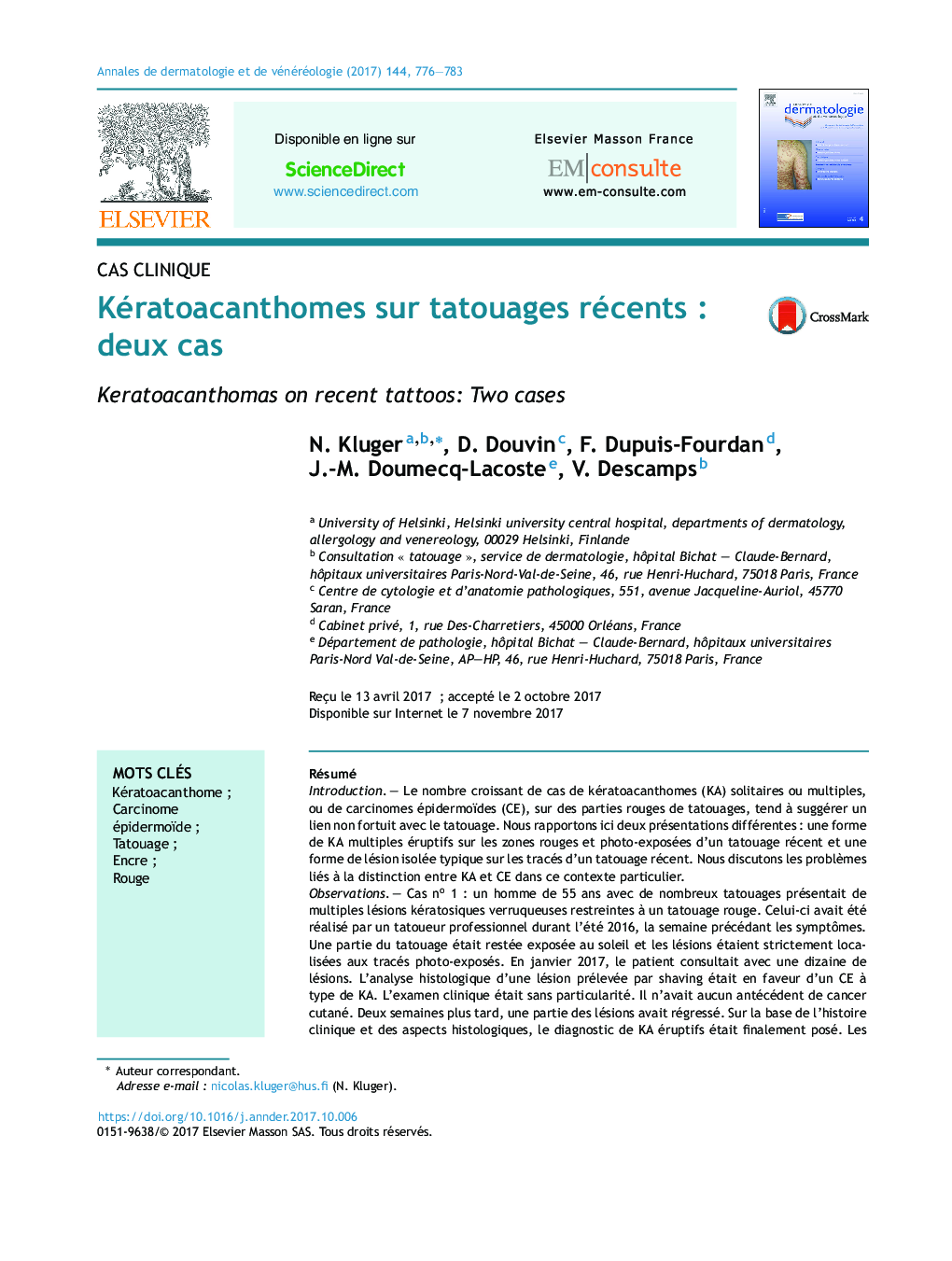| Article ID | Journal | Published Year | Pages | File Type |
|---|---|---|---|---|
| 8711309 | Annales de Dermatologie et de Vénéréologie | 2017 | 8 Pages |
Abstract
To date, we have found 31 case reports and series (17 men, median age: 50.5 years) of KA and CSC on tattoos. Lesions usually develop rapidly after completion of the tattoo, after between one week and several months. Exceptional cases have been described in old tattoos. Red tattoo ink is most commonly the culprit. The main difficulty lies in distinguishing between KA and CSC. Nowadays pathologists agree that a KA should be considered as a variant of CSC. Eruptive forms of KA present a peculiar situation. They may sometimes be inherited, and KA on recent traumatized areas or drug-induced have been described. Like other authors, we believe that cases of CSC on red tattoos belong rather to the KA type. The physiopathogenesis of tattoo-associated eruptive KA and CSC is not clearly understood, but could be multifactorial, involving: the trauma induced by tattooing, local inflammatory reaction, a component of the red ink, external factors such UV exposure, and a possible genetic predisposition. Rapidly arising KA and eruptive KA on top of recent (red) tattoos are not fortuitous. The lesions should be excised and the patient monitored. Additional studies on tumor specimens are warranted to identify the possible causative agents in tattoo ink that may be responsible for such reactions.
Keywords
Related Topics
Health Sciences
Medicine and Dentistry
Dermatology
Authors
N. Kluger, D. Douvin, F. Dupuis-Fourdan, J.-M. Doumecq-Lacoste, V. Descamps,
